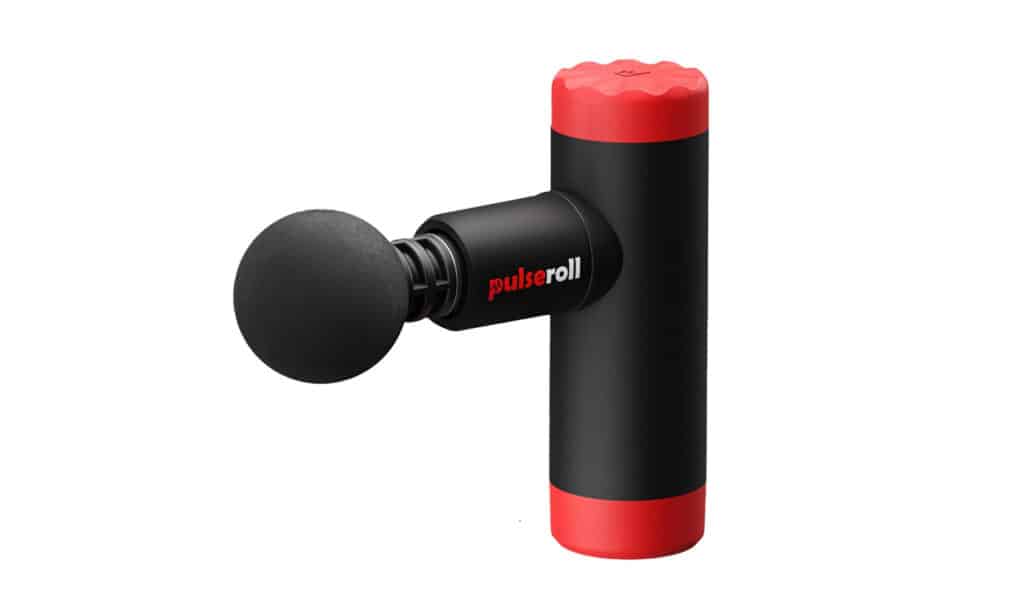
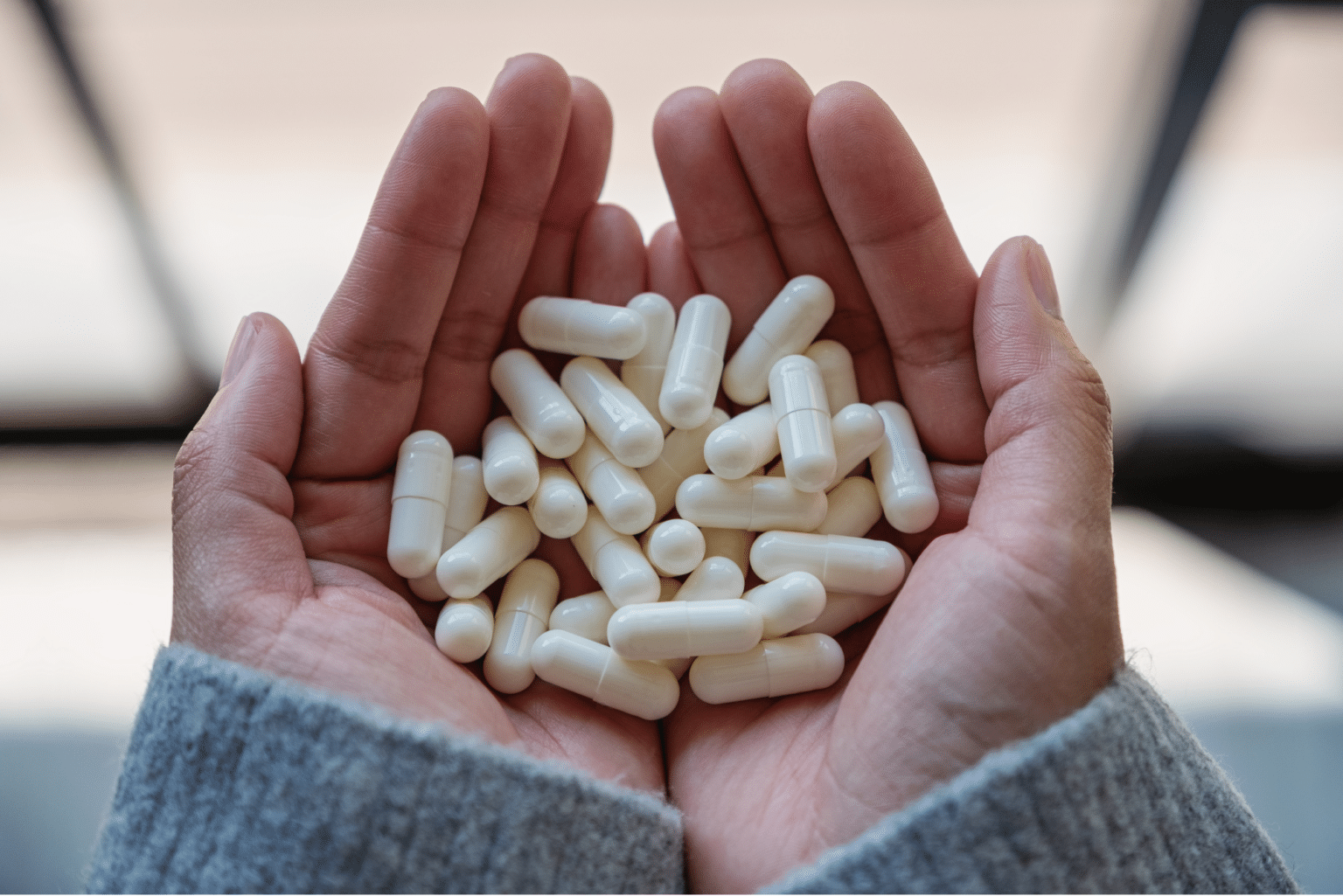
As a runner, you’re all about fine-tuning your body for peak performance, from choosing the right shoes to understanding that every mile counts in your training log. There’s a lot of talk in the health world about probiotics – live bacteria and yeasts that are good for your digestive system, known for being found in yoghurts, supplements and other fermented foods. It’s no surprise that runners are intrigued by the potential advantages of a thriving population of gut bacteria. A healthier gut holds the promise of fewer illnesses and gastrointestinal issues while training and competing. But what about probiotics for runners?
Before we dive into whether or not you should take probiotics, let’s understand what they are. Probiotics are live microorganisms that, when consumed in adequate amounts, can bring numerous health benefits. They are often called ‘good’ or ‘friendly’ bacteria because they help keep your gut healthy, which is crucial for overall well-being.
Probiotics are a combination of live beneficial bacteria and/or yeasts that naturally reside in your body. They can be used to alter or restore the intestinal flora and promote better health. By repopulating the intestinal tract with beneficial organisms, probiotics help counteract the effects of antibiotics, which can eliminate both good and bad bacteria.
Probiotics are primarily found in fermented dairy products such as live-culture yoghurts and kefir. When purchasing yoghurt, look for the label indicating “live and active cultures” and low sugar content. Probiotics can also be taken as supplements in capsule, tablet, liquid, or powder form.
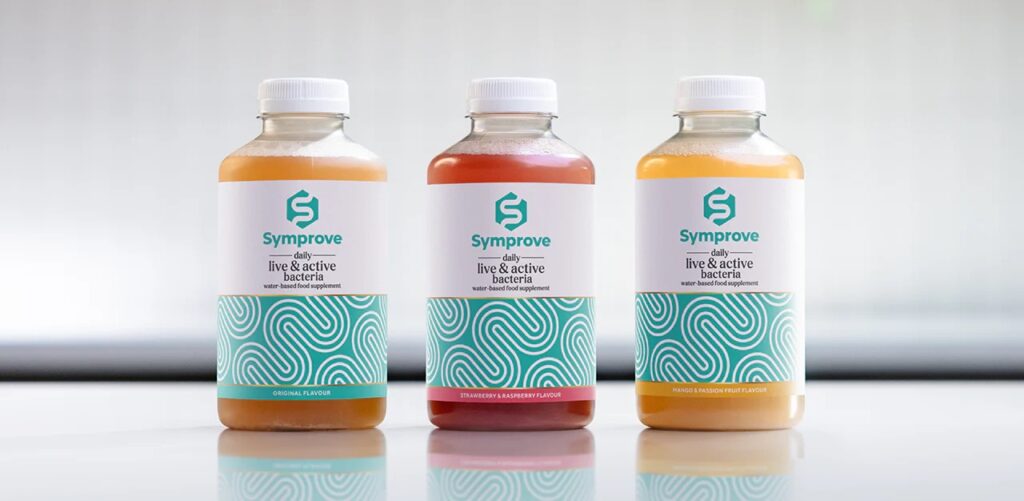
Distinguishing probiotics from digestive enzymes is important. While both contribute to the digestive process, enzymes aid in breaking down food into smaller, more easily absorbed components, while probiotics promote the balance of protective bacteria in the gut. Digestive enzymes can be obtained from food, such as raw fruits and vegetables, as well as in supplement form.
Digestive enzymes and probiotics are often grouped together due to their shared role in enhancing gut health and digestion. They are commonly combined in gut health supplements because their functions complement each other. However, it is crucial to understand that digestive enzymes and probiotics have distinct physiological functions.
Digestive enzymes are biological substances that help break down the nutrients in our food. On the other hand, probiotics are live, functional microorganisms that can confer beneficial effects on the gut when consumed in sufficient quantities. Probiotics assist the beneficial bacteria in carrying out various tasks, including the breakdown of fibre, production of certain vitamins, maintenance of the gut barrier’s integrity, and support of the immune system by creating an unfavourable environment for pathogenic bacteria to thrive.

The rigorous physical activity of running can sometimes exert stress on your digestive system. The argument supporting the use of probiotics for runners lies in their ability to maintain a balanced gut flora, resulting in improved nutrient absorption and enhanced immune function. However, the question remains: are they truly necessary?
Most runners associate probiotics solely with digestive benefits, both at the beginning and end of a race. While it is indeed true that probiotics, whether in supplement form or through consumption of probiotic-rich foods, can improve digestion, reduce bloating, alleviate constipation and/or diarrhoea, and ease other related symptoms commonly faced by runners, the advantages of probiotics extend far beyond preventing sudden mid-race dashes to the nearest porta-loo.

Numerous studies have revealed connections between the gut microbiome and various aspects of our overall health, including skin health, mood and brain function, immune system strength, inflammation management, quality of sleep, hormonal regulation, appetite control, and more.
For runners who struggle with sleep issues, anxiety or depression, chronic fatigue, skin conditions such as rashes or acne, underlying inflammation, frequent illnesses, or a general sense of being unwell, incorporating more probiotic-rich foods into their diet or opting for a high-quality probiotic supplement can often yield significant benefits.
The decision to take probiotics is not a one-size-fits-all approach. If you frequently experience digestive issues or have recently completed a course of antibiotics, probiotics can be beneficial. It is important to assess individual needs and consult with a healthcare professional.
While many runners choose to take probiotic supplements, the effectiveness of probiotic pills varies. Some bacterial strains found in inexpensive probiotic supplements may not survive the harsh digestive environment of the stomach and reach the small intestines. Therefore, incorporating foods with probiotics into your diet is often a more effective strategy for runners with gut issues.
Fermented foods contain many of the same beneficial probiotic bacterial strains found in probiotic supplements. These live microorganisms enhance the bioavailability of nutrients in food, produce antioxidants, and reduce anti-nutritive factors during the fermentation process. Here are some of the best dietary sources of probiotics:
Certain cheeses, pickles, buttermilk, miso, and raw milk can also naturally contain probiotics and functional organisms.
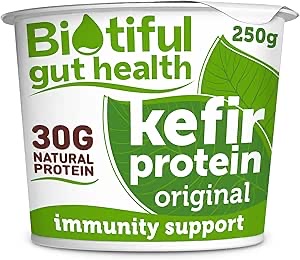
In the quest for a healthy gut microbiome and maintaining the integrity of the GI tract, you have two options. You can opt for a high-quality probiotic supplement, such as those available at Just Vitamins.co.uk, or you can incorporate probiotic-rich foods into your diet. Both approaches effectively support your gut health and promote a robust barrier in the GI tract. This can reduce the risk of stomach irritation, digestive distress, inflammation, gas, bloating, and irregular bowel patterns that may hinder your running or training goals.

If you do decide to incorporate probiotics into your running nutrition, here’s what you stand to gain:
Improved digestive health: Longer runs can sometimes lead to digestive discomfort. Probiotics can help maintain a healthy gut environment, which might alleviate some of these issues.
Enhanced immune function: Runners can face temporary suppression of the immune system after particularly strenuous exercise. Probiotics may help reduce this effect.
Optimised nutrient absorption: Running can increase the need for certain nutrients. Probiotics promote a healthy gut that can handle this increased demand.
Reduced risk of gastrointestinal distress: Probiotics have been found to be effective in reducing the risk of stomach irritation, bloating, and other GI issues that may occur during long-distance runs or races.
Improved overall health: A healthy gut microbiome has been linked to numerous health benefits beyond digestive functions. Incorporating probiotics into your diet can improve skin health, mental well-being, sleep quality, and more.
Reduced reliance on antibiotics: Long-distance runners often face a higher risk of illness due to the added stress on their bodies. Probiotics may help boost immune function and reduce the need for antibiotics in case of infection or illness.
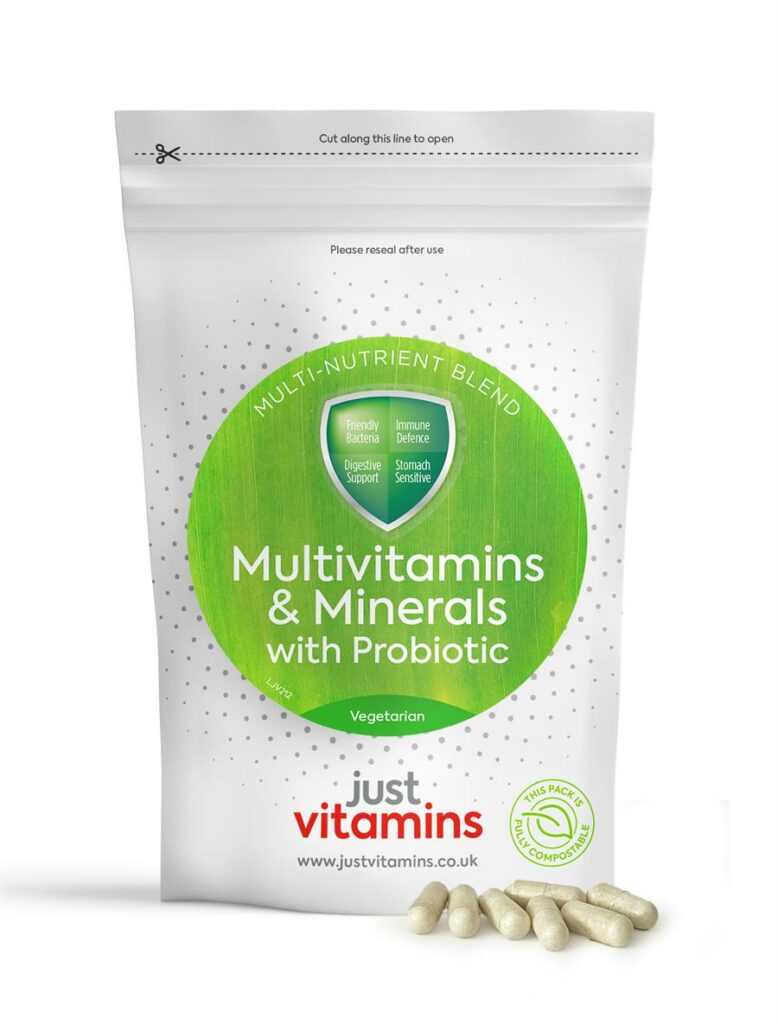
For runners interested in trying probiotics, here are some guidelines to consider:
Opt for real foods: Before reaching for a supplement, consider natural sources of probiotics like yoghurt, kefir, and fermented foods. These may contain a wider variety of probiotic strains and other beneficial nutrients.
Pay attention to quality: When selecting a supplement, it is important to choose one from a reputable brand like Justvitamins.co.uk, which offers high-quality ingredients and viable bacterial strains. Additionally, consider looking for third-party certifications and reading reviews from reliable sources to ensure you make an informed decision. Prices on Just Vitamins start at around £6.49 for 60 capsules, take a look today.
Consider timing: Probiotics may be beneficial to take before or after intense exercise when the immune system may be temporarily suppressed. However, it is always best to consult with a healthcare professional for personalised advice.
Do your research: Not all probiotics are created equal. Look for strains like Lactobacillus and Bifidobacterium that have been studied for their benefits.
Start Slowly: If you decide to take a supplement, introduce it gradually to allow your body to adjust. Too much too soon can cause gastrointestinal upset.
Remain Consistent: Probiotics are most effective when taken regularly. Incorporate them into your daily routine and monitor how they make you feel. If you experience any adverse effects, stop using and consult with a healthcare professional.
Include Fermented Foods: A diet rich in fermented foods can bolster your gut health and work hand-in-hand with probiotic supplements. Aim for a variety of probiotic-rich foods and incorporate them into your meals or snacks.

Regardless of whether you include probiotics in your diet, remember to stay well-hydrated. Water is essential for optimal digestive function and overall health.
The most important advice for any runner is to listen to your body. If you feel that probiotics make a difference in your performance or recovery, continue. If not, you might be one of the lucky individuals with a rock-solid gut already.
Keep in mind that while probiotics can be a useful tool, they are not a cure for an unhealthy lifestyle. A balanced diet, adequate rest, and proper hydration are just as important for your running health.
It is crucial to bear in mind that probiotics consist of living bacteria, which may perish if you handle your supplement carelessly.
To maintain the potency of a probiotic supplement, it is advisable to store it in a cool place, shielded from direct sunlight and excessive heat. Optimal storage would be in the refrigerator, while the least ideal location would be inside a hot car on a scorching summer day.
Whether it’s the beginning of an intense training phase or the start of a dedicated block of training, it may take up to 14 days for noticeable changes to occur in your gut bacteria.
During the initial days of probiotic intake, as your body acclimates, certain adjustments might occur.
When it comes to incorporating probiotics into your training or dietary regimen, it’s important to approach them with careful consideration. While they may offer certain benefits, it’s crucial to understand that they’re not a magical solution that will instantly transform you into a stronger and faster runner.
If you’ve been curious about probiotics, it’s worth trying them out gradually and observing how they impact your running experience. Why not purchase yours from Justvitamins.co.uk today? Remember, even small improvements can make a difference.
Although there is still much we have yet to discover about the relationship between probiotics, health, and performance in runners, existing scientific research suggests that they could potentially be valuable in reducing training time lost due to illness and mitigating gastrointestinal issues during both training and long-distance races.
Join our mailing list to stay up to date with the latest UK running events, training tips, and exclusive offers on running products. Rest assured, we value your privacy and would never dream of selling your address. Sign up now…
Share this article
Are Huel Daily A-Z Vitamin Drinks worth the hype? We tested a mixed flavour pack...
In the world of fitness, nutrition is just as important as exercise. And for runners,...
Looking to boost your running performance naturally? Beetroot shots might be the solution. There are...
The world of endurance running is constantly evolving, with runners always on the lookout for...
Looking for quick, nutritious meals that boost your energy for running? In this article, you’ll...
Nicola Vaughan DipNT Registered Nutritional Therapist Have you heard of leaky gut? Intestinal permeability, also...
We’re here to make sure you’re up-to-date with the latest running tips, events and product discounts – we’ve always got your back! Rest assured, we value your privacy and would never dream of selling your address.
BONUS: Sign up today and receive a FREE code for our Sub-4-Hour Marathon Plan
Your privacy settings
Manage Consent Preferences
Necessary
Analytics
Embedded Videos
Marketing
Facebook Advanced Matching
Facebook CAPI